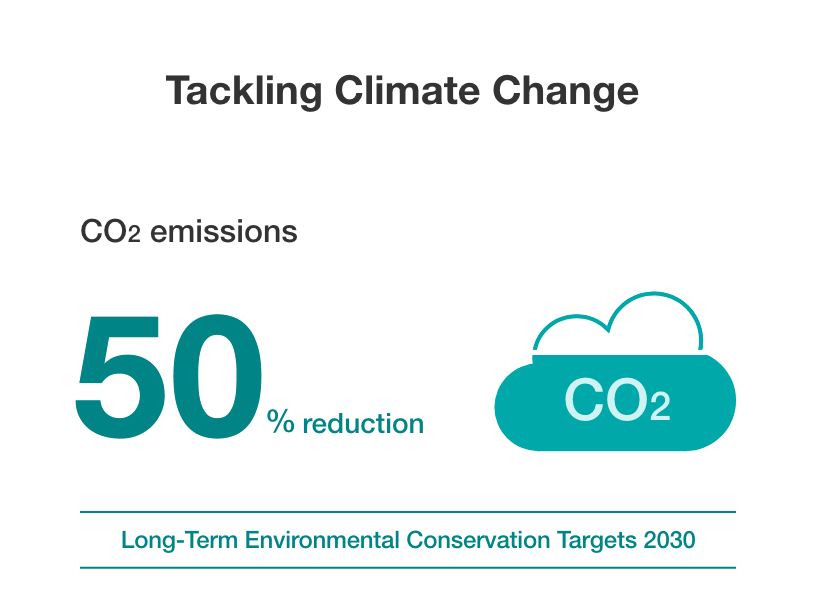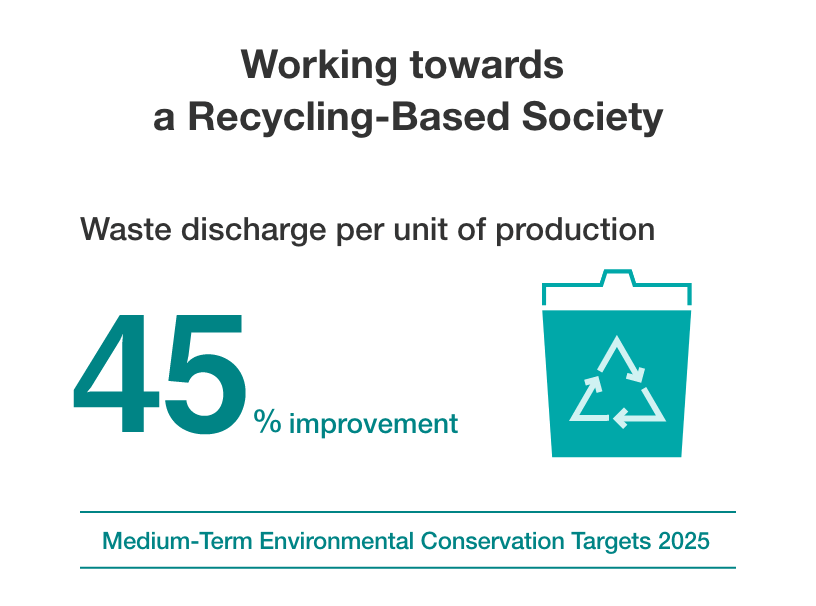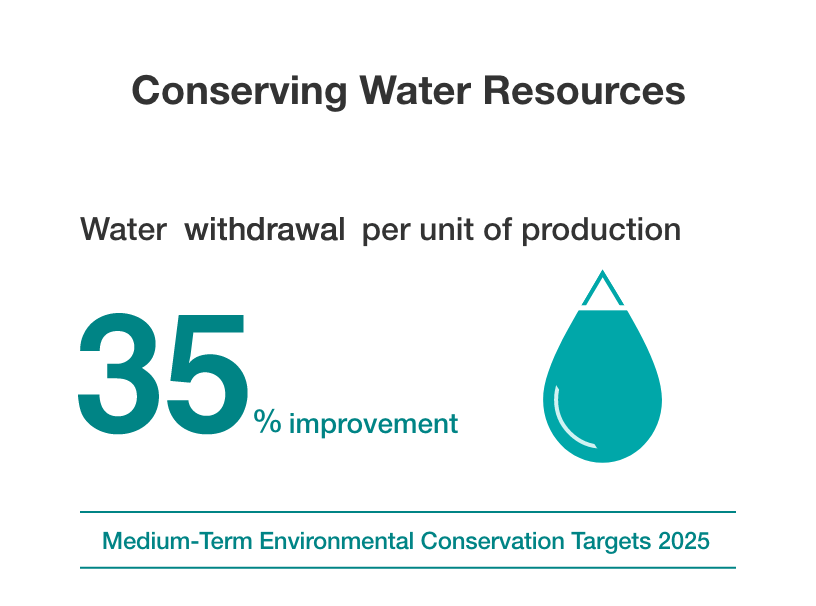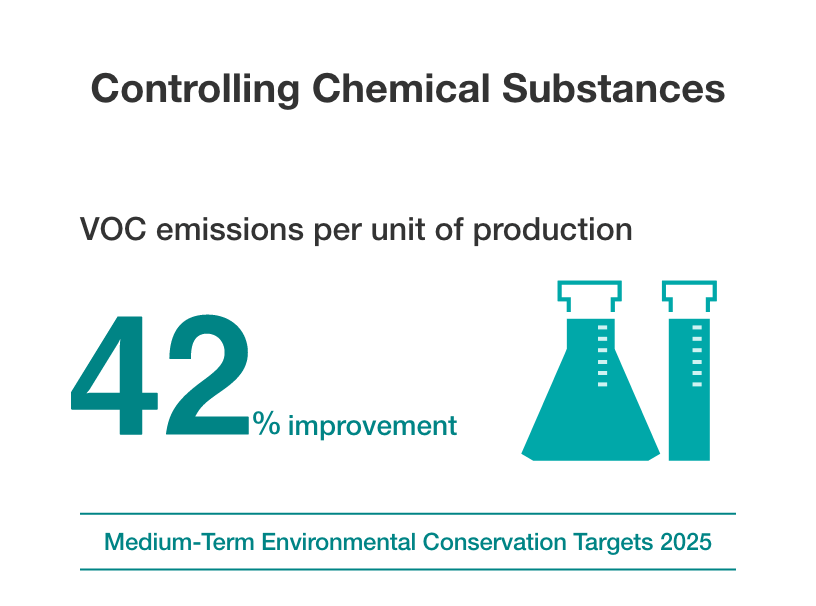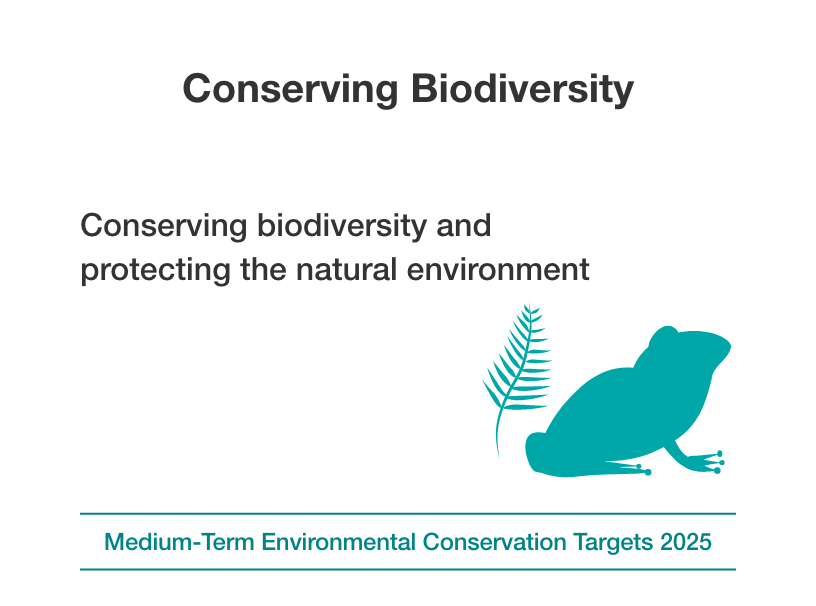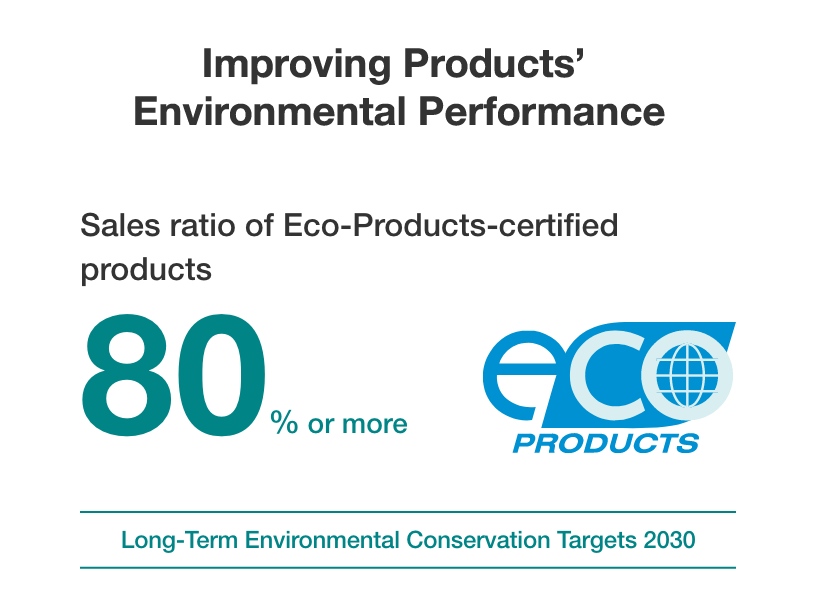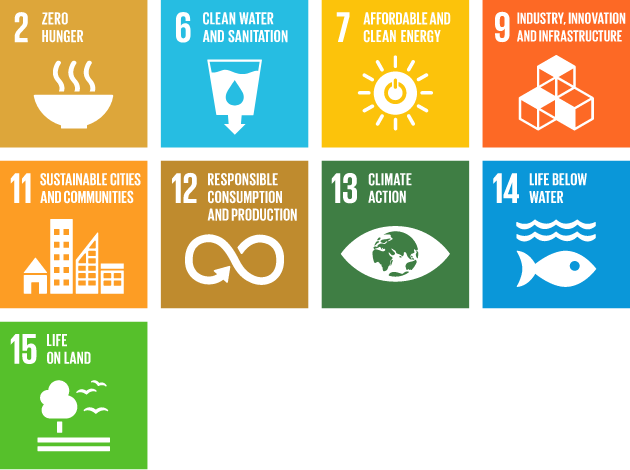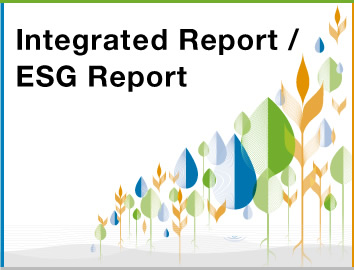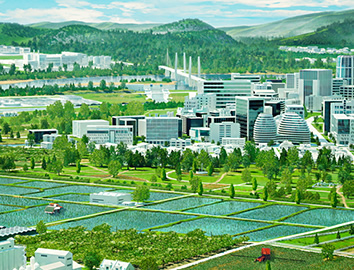Environmental Conservation Initiatives
Contributing to the development of society and conservation of the global environment

The Earth where we live faces a variety of environmental issues, from regional to global. As these become increasingly serious, global goals and international frameworks such as the Sustainable Development Goals (SDGs) and the Paris Agreement have been agreed on, and many companies are working toward a sustainable society. The mission of Kubota is to resolve global issues in the area of food, water and the environment through our business, and we have established an environmental vision, medium- and long-term targets for environmental conservation to contribute to building such a society. We promote environmental conservation activities to achieve this. Through reducing environmental impacts and risks in our corporate activities, we contribute to developing a sustainable society and conserving the global environment.
Kubota's Environmental Vision
Target Situation toward 2050 from an Environmental Perspective
Kubota considers climate change countermeasures and other environmental conservation initiatives to be priority issues in its corporate activities. In our efforts to contribute to solving global-scale social issues such as food shortages and global warming, we have put forth our Environmental Vision that indicates the direction of our business activities toward 2050 from an environmental perspective, alongside our long-term vision GMB2030. We will promote efforts toward realizing a carbon-neutral and resilient society.
Kubota’s medium- and long-term environmental conservation targets
Main Activities and Targets (excerpt)
Kubota’s initiatives to achieve medium- and long-term environmental conservation targets
Aiming for a Society That Realizes Sustainable Development
-
Promoting climate change mitigation and adaptation measures
According to the Fifth Assessment Report by the Intergovernmental Panel on Climate Change (IPCC), it is highly likely that global warming is caused by human activities. As a result, efforts to reduce greenhouse gases are accelerating worldwide. Kubota is working to reduce CO2 emissions by saving energy and using renewable energy sources as mitigation measures to reduce greenhouse gases. Also, we work through our business activities on adaptation measures to avoid and mitigate risk to prepare for the impact of climate change.
- Long-Term Environmental Conservation Targets 2030
- Reduce CO2 emissions from the Kubota Group by 50% compared to the base year FY2014.
- Medium-Term Environmental Conservation Targets 2025
- Improve CO2 emissions per unit of production by 45% compared to the base year FY2014 at the global production sites.
- Improve ratio of renewable energy usage by 20% or more at the global production sites.
- Improve energy consumption use per unit of production by 35% compared to the base year FY2014 at the global production sites.
- Long-Term Environmental Conservation Targets 2030
-
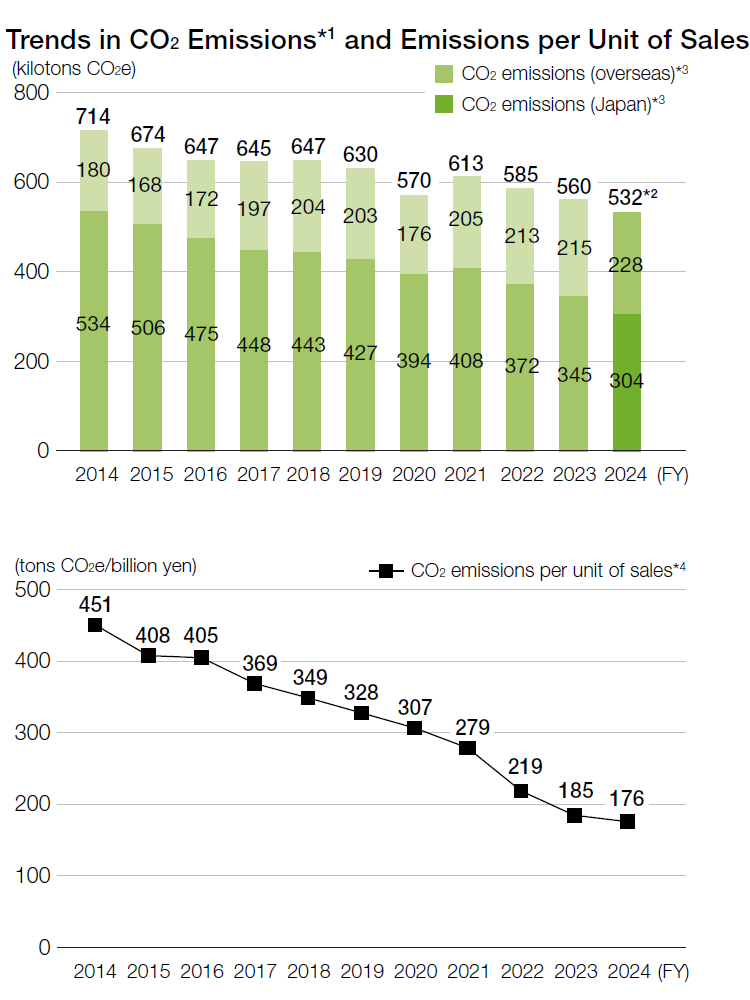
Enlarge
-
Effectively using resources and reducing waste
Due to our mass-production and mass-consumption society, we face many challenges such as resource depletion, increasing waste, and garbage that adversely impacts ecosystems. Kubota limits generation of waste by reducing waste and loss of resources, and reuses and recycles garbage to work for the effective use of resources and the 3Rs of waste (Reduce, Reuse, Recycle).
- Medium-Term Environmental Conservation Targets 2025
- Improve waste discharge per unit of production by 45% compared to the base year FY2014 at the global production sites.
- Improve hazardous waste discharge per unit of production by 17% compare to the base year FY2019 at the global production sites.
- Maintain a waste recycling ratio of at least 99.5% in Japan and 90.0% overseas.
- Reduce disposable plastics at business sites.
- Work with suppliers to conserve packaging materials and make them returnable.
- Implement paperless operation.
- Medium-Term Environmental Conservation Targets 2025
-
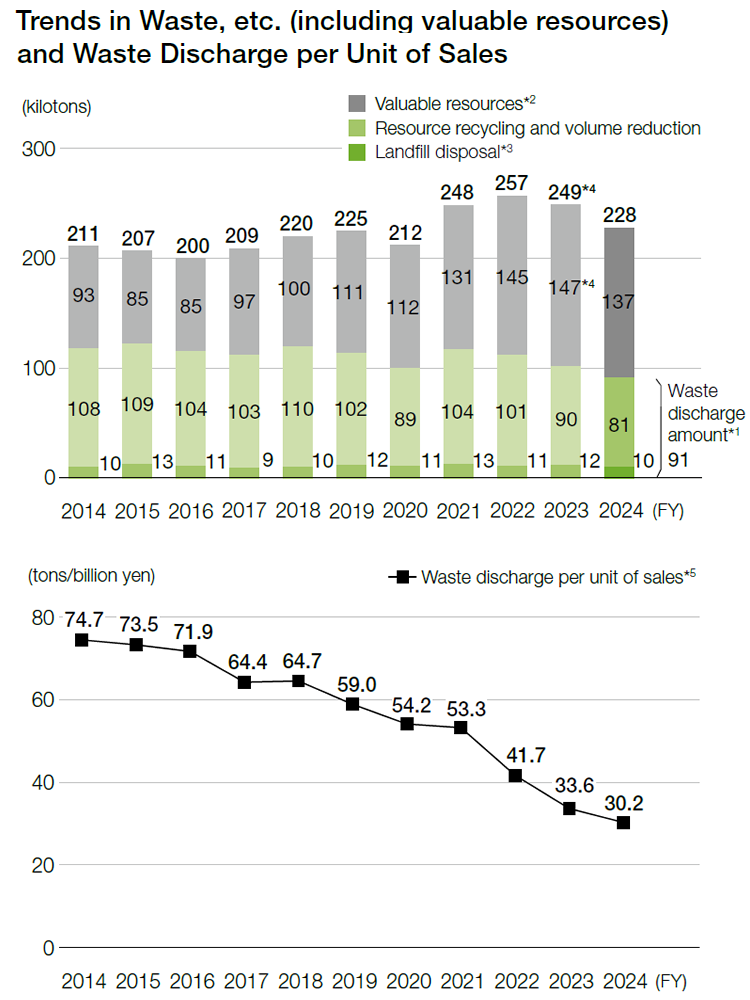
Enlarge
-
Reducing water withdrawal and properly controlling wastewater
According to the 2012 OECD (Organization for Economic Cooperation and Development) Environmental Outlook to 2050 Report, global demand for water will increase by approximately 55% from the year 2000 to 2050, and the population of river basins with severe water shortages is more than 40% of the world's population. Kubota is working to reduce water withdrawal by recycling water, reducing water use, and introducing a wastewater recycling system using our own technology. Also, we are working to reduce the impact on the water environment through controlling wastewater based on our self-management values stricter than laws and regulations, as well as studying water stress*.
- Water stress refers to the state where the annual water availability per capita is less than 1,700 tons and people feel inconvenience in their daily life.
- Medium-Term Environmental Conservation Targets 2025
- Improve water withdrawal per unit of production by 35% compared to the base year FY2014 in the global production sites.
- Manage wastewater appropriately in accordance with the standards of the water discharge by operating wastewater treatment facilities and water recycling facilities, etc. at the global production sites.
-
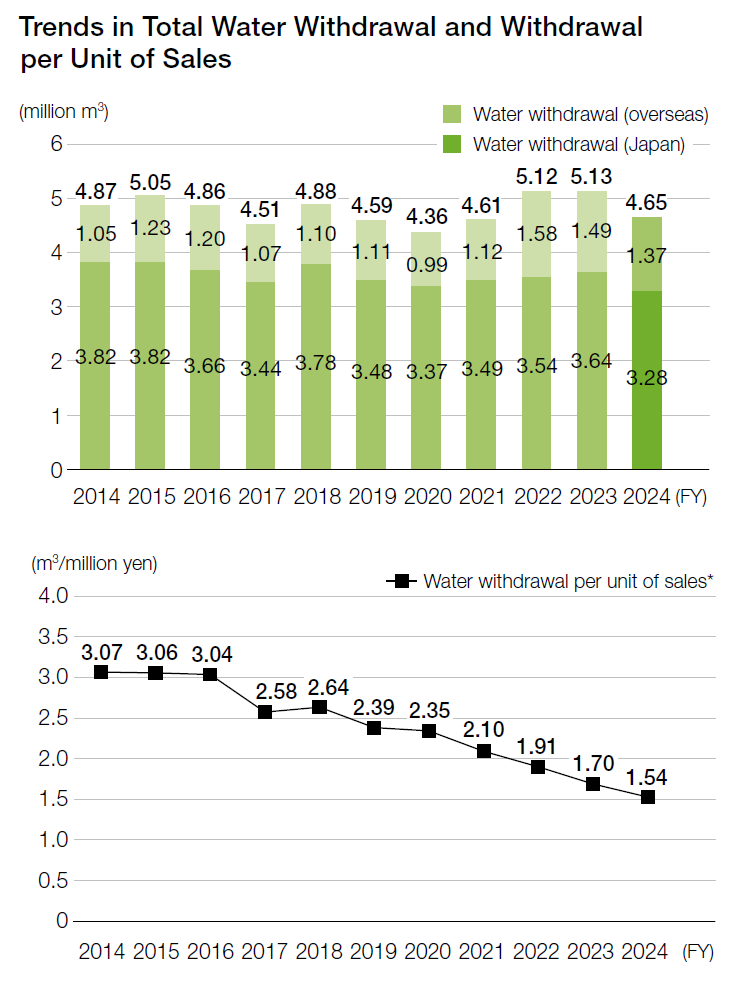
Enlarge
-
Appropriate control of chemical substance and VOC* emissions reduction
Chemical substances have become an essential part of our lifestyles. On the other hand, to control the impact of chemical substances on humans and ecosystems, countries are strengthening laws and regulations related to their use and management. Kubota is working to reduce VOC emissions by improving the efficiency of paint use and switching to VOC-free paint. We are also working to reduce the environmental impact of chemical substances, such as by properly managing fluorocarbons and reducing emissions of air pollutants such as SOx and NOx.
- Volatile Organic Compounds
- Medium-Term Environmental Conservation Targets 2025
- Improve VOC emissions per unit of production by 42% compared to the base year FY2014 at the global production sites.
-
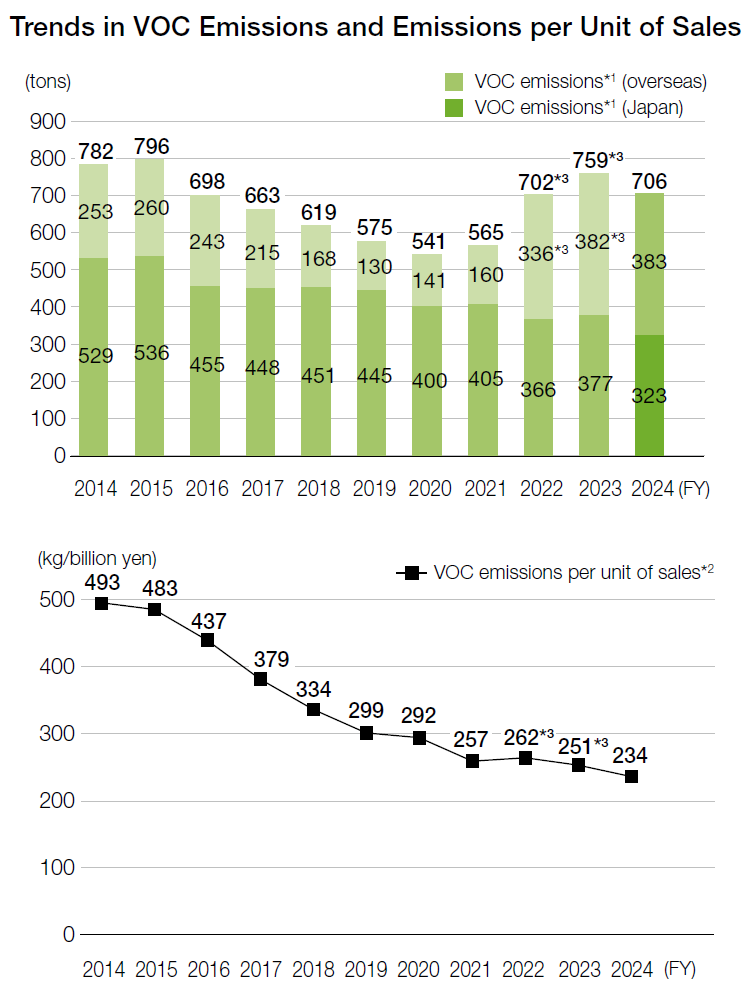
Enlarge
-
Conserving biodiversity through corporate activities and social contribution initiatives
In recent years, the threat to biodiversity from environmental destruction has become a global issue. With the United Nations SDGs calling for business operators to protect biodiversity, Kubota is working to conserve biodiversity and protect the natural environment by a variety of activities contributing to society including managing and reducing the environmental impacts involved with corporate activities, providing environment-friendly products and services, tree planting and community cleanup activities.
- Medium-Term Environmental Conservation Targets 2025
- We will promote the protection of the natural environment by greening our establishments and creating biotopes.
- We will also promote conservation of the local natural environment and biodiversity through social contribution activities.
- Medium-Term Environmental Conservation Targets 2025
-
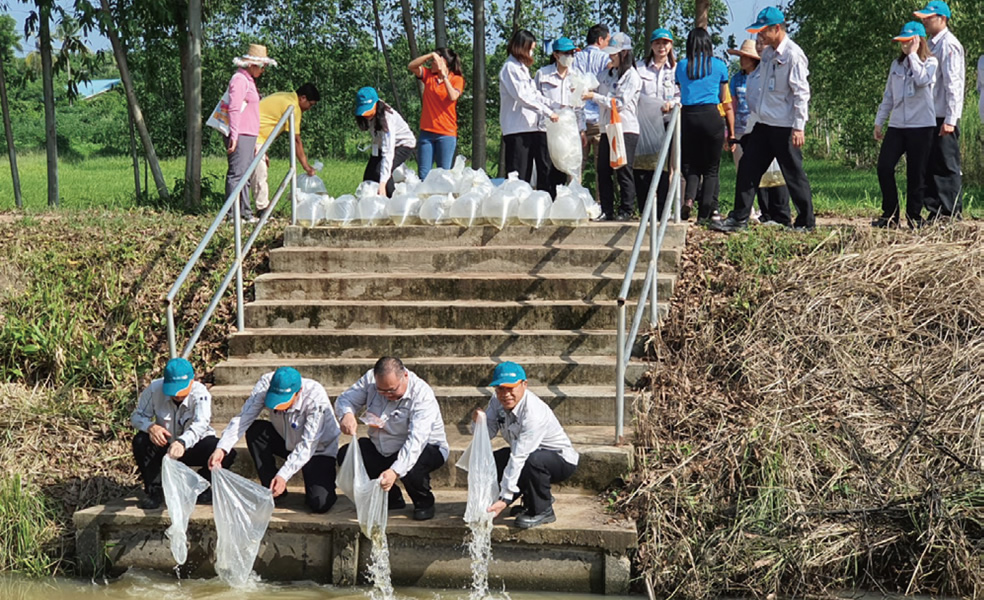
-
Promoting environmental consideration throughout the product lifecycle
Kubota promotes environment-friendliness over the entire product life cycle, from procurement of raw materials to disposal of products. We conduct environmental assessment of products in the design and development stages and analyze the environmental impacts. Environment-friendly products are internally certified as Eco-Products, and we are expanding reduced fuel consumption, longer service life, promotion of recycling, and cleaning of emission gases. We will contribute to resolving social issues in the areas of food, water and living environments through providing environment-friendly products and services.
- Long-Term Environmental Conservation Targets 2030
- Increase the sales ratio of Eco-Products-certified products to 80% or more by 2030.
- Aim to put all new products which are certified as Eco-Products in the market in 2030 and later.
- Medium-Term Environmental Conservation Targets 2025
- Increase the sales ratio of Eco-Products-certified products to 70% or more by 2025.
- Maintain the usage ratio of recycled materials 70% or more.
- Display the material of new parts and provide material information.
- Develop industrial diesel engines that comply with the latest emissions regulations (Stage V), and launch products with such engines onto the market.
- Launch the vehicles that comply with the latest emissions regulations (Stage V) onto the market.
- Long-Term Environmental Conservation Targets 2030
-
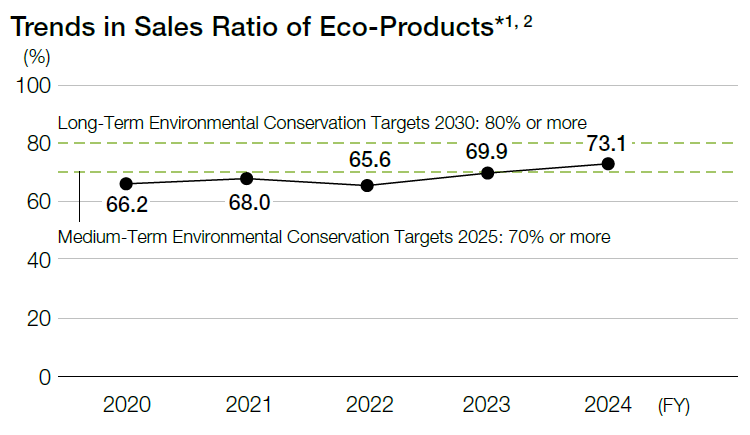
Enlarge
Global case studies in environmental conservation initiatives
Kubota's Global Environmental Conservation Initiatives
Continue Supporting the Prosperous Life of Humans While Protecting the Environment of this Beautiful Earth
Working for attainment of the 17 goals of United Nations SDGs that aim to transform our world
At the end of a United Nations Summit meeting in 2015, the Sustainable Development Goals (SDGs) were promulgated, listing 17 common goals for the international community. Kubota has identified nine of these goals, such as Climate Action, Clean Water and Sanitation, Responsible Consumption and Production, as areas where the Kubota Group is especially well placed to contribute through its environmental conservation initiatives.
Kubota, which advocates “For Earth, For Life,” will continue to protect the beautiful earth while further revitalizing environmental conservation activities and supporting people's prosperous lives.
Kubota’s ESG Management
Aiming for sustainability and achievement of our long-term vision
-
K-ESG Management and Materiality
In line with its aim to maintain itself as a sustainable company, Kubota is promoting K-ESG Management, centered on its own ESG measures. With a focus on the four areas and 12 points of materiality, we aim to enhance our corporate value and realize our long-term vision GMB2030.
-
Top Message: Sustainability
Aiming to become an “'Essentials Innovator for Supporting Life,' Committed to a Prosperous Society and Cycle of Nature,” we will promote Kubota’s own style of ESG Management, thereby contributing to sustainability through the resolution of issues related to food, water, and the environment.

